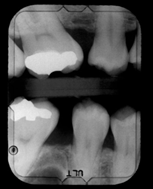Cavities: Top Common Myths and Facts

Almost every person will experience having at least one cavity in their lifetime. Many of us have our own theories about why cavities form and why some people get them more than others. In this week’s blog, we are going to discuss the common myths and facts associated with
cavities.
Top Common Myths about CavitiesGrowing up, we are often given misinformation about cavities that make us change our eating habits and lifestyles. Here are some of the most common myths regarding cavities:
- Sugar is the main cause of cavities – there is no denying sugar can contribute greatly to the creation of cavities, however it is not their fault alone. Sugars act with the carbohydrates to fuel the bacteria that grow in your mouth causing tooth decay. For the best results, clean your teeth immediately after eating sweets to minimize the risk.
- Kids are more likely to get cavities than adults – Though children are more at risk for cavities, senior citizens also have high rates of tooth decay.
- You will know if you have a cavity – People usually only notice they have a cavity if the symptoms are severe. In the beginning, the symptoms are often too mild to detect or the person with the cavity has a high tolerance for pain and may not notice the cavity until it is too late and damage has become apparent.
The best way to check if a myth about cavities is true is to speak with
Dr. Roderick Garcia, DMD in Albuquerque.
Top Common Facts about CavitiesTooth decay is the number one chronic illness in children and senior citizens. The following are facts about how cavities are caused and how they can be treated and prevented:
- Exposure to acidic foods cause tooth decay – Acidic foods like lemons and soft drinks won’t cause cavities, but they do weaken the enamel on your tooth making it prime property for a cavity to invade.
- Once a tooth is treated, the decaying stops – Once you have a cavity filled, the decaying will end and won’t be back in that spot. Especially if you continue to brush and floss your teeth regularly.
- Gaps in teeth encourage cavities – It can sometimes be difficult to clean between a gap in one’s teeth, encouraging the development of decay and bacteria to form.
- Chips and cracks in teeth make you more susceptible to cavities – Chips and cracks can create hiding places for bacteria to grow that are hard to clean. Tooth decay then begins to form, creating a cavity.
The best way to treat and prevent cavities is to brush, rinse and floss regularly. By doing this you are protecting your mouth from bacteria entering. Dr. Roderick Garcia recommends you perform your dental routine at least twice a day for the best results. Use a fluoride rinse to protect your enamel and get in the cracks and small gaps that your toothbrush cannot normally reach and make your bi-annual
appointment to see Dr. Garcia for regular dental maintenance.
Recent Posts
Dental care plays a pivotal role in maintaining a healthy and beautiful smile. General dentists provide various services to help individuals achieve optimal oral health. This blog will explore the most commonly asked questions about general dentists and explain their diverse services.General dentistry is a type of dental care focused on preventing, diagnosing, and treating…
General dentists are the professionals individuals see for preventative dental care and their biannual checkups. However, they can also help with sudden dental needs, such as treating tooth pain or repairing broken teeth. Let us look at the causes of broken teeth, their types, and how we can help.There are various types of broken teeth,…
Whether you have not visited the dentist in a long time, have never been, or are simply switching general dentists, it is normal to have questions on your mind. Patients often want to ask about their current oral health, such as whether they need to be worried about cavities or persistent tooth sensitivity. They may…
Finding the right dentist for your oral health needs is an important process. While a general dentist and a family dentist offer similar services, there are significant differences between these dental specialties. Understanding these differences can help you make an informed decision that best fits your and your family's needs.A general dentist is a primary…
 Almost every person will experience having at least one cavity in their lifetime. Many of us have our own theories about why cavities form and why some people get them more than others. In this week’s blog, we are going to discuss the common myths and facts associated with
Almost every person will experience having at least one cavity in their lifetime. Many of us have our own theories about why cavities form and why some people get them more than others. In this week’s blog, we are going to discuss the common myths and facts associated with 
